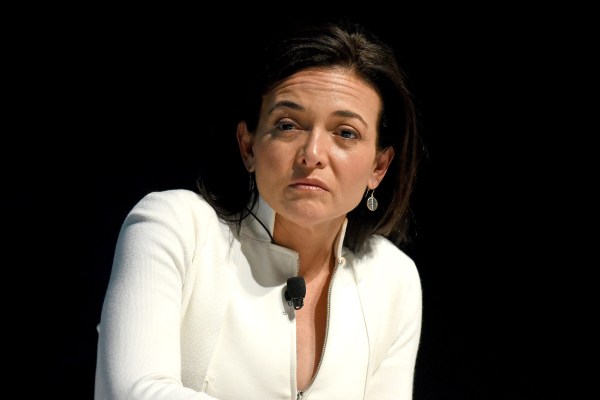The days of silence from Facebook’s top executives after the company banned the political advisory service Cambridge Analytica from its platform were a mistake, according to Sheryl Sandberg.
In a brief interview on CNBC, Sandberg said that the decision for her and company chief executive and founder Mark Zuckerberg to wait before speaking publicly about the evolving crisis was a mistake.
“Sometimes we speak too slowly,” says Sandberg. “If I look back I would have had Mark and myself speak sooner.”
It was the only significant new word from the top level of leadership at Facebook following the full-court press made by Mark Zuckerberg yesterday.
The firestorm that erupted over Facebook’s decision to ban Cambridge Analytica — and the ensuing revelations that the user data of 50 million Facebook users were accessed by the political consulting and marketing firm without those users’ permission — has slashed Facebook stock and brought calls for regulation for social media companies.
Even as $60 billion of shareholder value disappeared, Zuckerberg and Sandberg remained quiet.
The other piece of information from Sandberg’s CNBC interview was her admission that the company is “open” to government regulation. But even that formulation suggests what is a basic misunderstanding at best and cynical contempt at worst for the role of government in the process of protecting Facebook’s users.
Ultimately, it doesn’t matter whether Facebook is open to regulation or not. If the government and U.S. citizens want more controls, the regulations will come.
And it looks like Facebook’s proposed solution will end up costing the company a pretty penny as well, as it brings in forensic auditors to track who else might have abused the data harvesting permissions that the company had put in place in 2007 and only sunset in 2015.
Before the policy change, companies that aggressively acquired data from Facebook would come in for meetings with the social media company and discuss how the data was being used. One company founder — who was a power user of Facebook data — said that the company’s representatives had told him “If you weren’t pushing the envelope, we wouldn’t respect you.”
Collecting user data before 2015 was actually something the company encouraged, under the banner of increased utility for Facebook users — so that calendars could bring in information about the birthdays of friends, for instance.
Indeed, the Obama campaign used Facebook data from friends in much the same way as Cambridge Analytica, albeit with a far greater degree of transparency.
The issue is that users don’t know where their data went in the years before Facebook shut the door on collection of data from a users’ network of friends in 2015.
That’s what Facebook — and the government — is trying to find out.
